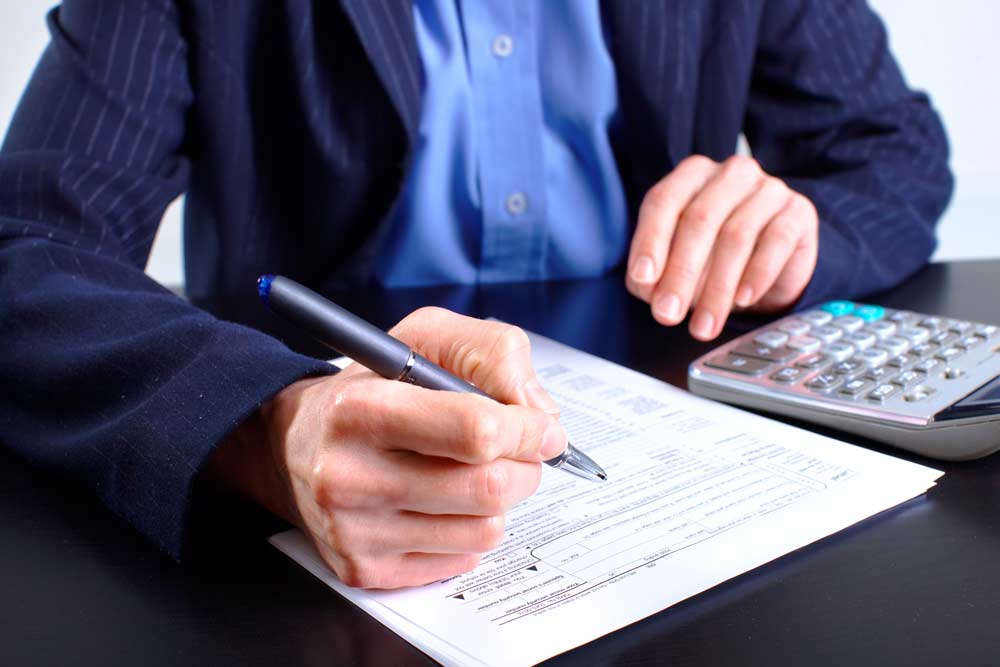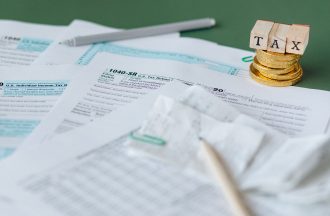
For the self-employed, accounting isn’t optional — it’s mandatory. Clients have to be billed, suppliers have to be paid, tax forms need to be filled and you’ve got the unpleasant task of dealing with it all yourself. Unless you are an accountant starting an accountancy business, chances are you aren’t a trained accountant. The prospect of having to deal with these responsibilities yourself can be quite daunting — what if you mess up or something goes wrong? What is the key to managing your accounts?
On a small scale, accounting really doesn’t have to be the terrifying. Accounting responsibilities can feel like a large, amorphous blob of anxiety and late nights, but by breaking these scary responsibilities down into simpler manageable processes, we can stay in good financial health.
Set Up a Business Account
One of the biggest mistakes a self-employed individual can make is mixing business transactions with their personal ones.
A business account is a separate entity to any other bank account under your name. This is where all payments relating to you business are based; whether incoming or outgoing. Setting up a business account is as simple as setting up a current account, and while many banks might offer special ‘business accountants’ for monthly fees, a standard free account works just as well.
With a business account set up, you can keep a clear distinction between transactions for your business and your personal life. Combining the two can lead to confusion, not only on your end but on the taxman’s end too.
Learn About Tax
Taxes are an unavoidable part of living and working. As a self-employed individual, it is your responsibility to educate yourself on exactly what taxes you have to pay. Every country has a different system of taxes, therefore it is vital that you get direct confirmation from your government on what you owe. You can do this by:
- Visiting their website
- Calling their hotlines if available
- Discussing tax with a local accountant
Also, remember there are changes to tax laws year-on-year, therefore it is vital you repeat this process at the beginning of every tax year.
Learn About Deductibles
Most modern tax systems, no matter what country you reside in, have a system of allowable expenses that relate to the cost of your business, reducing taxable income. These allowable expenses typically include the basic tools you need for the job. A computer for a writer, tools for a plumber, a piano for a piano teacher, etc.
You can also claim for other things too. In the United Kingdom you can claim £5 on meals each day, however, in the USA meals are only allowed to be included if it is necessary to take a client out to discuss business. Just as with tax you have to pay, it is suggested you contact your government or a local expert to find out exactly what you can and can’t claim on. Understanding this is the key to having to pay less tax.
Guesswork in this area can and will lead to nasty surprises. Assuming you may claim for something you can’t will likely incur fines or allegations of fraud, leading to unwanted investigations.
Claims are easily made, providing you have done your research first. The majority, if not all, tax systems that allow for expense claims do so by offering up a form to go alongside your annual tax return. The two documents coincide with one another, with expenses reducing your tax bill. It is also worth noting that you can’t claim an unlimited of expenses, instead you are given a maximum allowance based on your annual income. Be sure you are made aware of your expenses limited when learning of deductibles.
Create a Space for Evidence
Evidence in this instance is proof of transactions, be they receipts, bills or invoices that relate to your business. All of these items must be kept as a reference, in case they are needed in the future. Identify what kind of storage system you want to use: electronic or physical paper copies (or both).
Although not mandatory, I recommend selecting one method and using only that one. While it means either printing all digital evidence or scanning all paper content, it allows for everything to be filed together, making referencing back easier and hassle free.
Once you’ve established a space for storage, make sure you record every transaction. It doesn’t matter if it was for $5 or $500, you must keep receipts as proof for your records. It might be time-consuming, but as a taxpaying business with clients to answer to, you must be able to back up any financial claims you make — be they payment disputes, claims for deductibles, tax returns or errors in bookkeeping.
If you fail to keep evidence stored securely and up-to-date you can face a number of issues including:
- Inability to claim expenses
- Penalties for not backing up tax claims
- Inaccurate books caused errors in bookkeeping and an inability to refer back to transactions
Get Familiar With Bookkeeping
Whilst you can just use good old Excel, there are a number of tailor-made pieces of bookkeeping software out there perfect for newcomers. These pieces of software, such as cashflow, are built to help make bookkeeping easier for you so they are perfect if you have no prior experience in organizing and recording finances.
It’s also important to note, that once you start bookkeeping, it’s imperative that you keep your books up-to-date. Regularly recording transaction is the only way you can get an accurate representation of your current financial status. Aim to do this at least bi-weekly, although weekly and even daily are recommended, time permitting.
Accurate bookkeeping offers an unparalleled way of managing your accounts. Allowing for decisions to be made on cutting overhead costs, expansion, future direction and more.
Don’t Be Afraid of Getting Help from a Professional Accountant
You can follow these rules, be highly diligent and keep your records clean, but that doesn’t guarantee you won’t encounter difficulties managing your accounts, it just reduces the risk. If you are making mistakes — and there are plenty of accounting mistakes that can be made — don’t sit around and wait for it to sort itself out; because it won’t.
Professional accountants can help you will all manner of financial and business processes and can also work as a contractor instead of being a full-time employee. The cost of leaving your accounts in peril is much greater than hiring a professional accountant (more often than not they pay for themselves).








